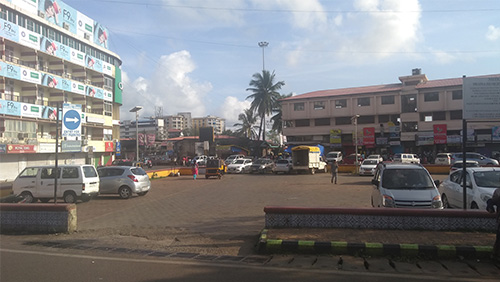The government of Goa, India, was supposed to have a written policy ready to present to the national government by August 2018. The deadline came and Goa was “still working on it.” Almost a year later, it apparently is still a work in progress, as the Goa government told the Legislative Assembly this week that it was still “examining” the issue.
 During a meeting of political figureheads this past Tuesday, Aleixo Reginaldo Lourenco of the Indian National Congress inquired about the progress of the policy in Goa, to which Chief Minister Pramod Sawant responded that the local government was still looking into it. Goa has 15 casinos in operation, of which nine are land-based and six are riverboat venues that navigate the waters of the Mandovi River.
During a meeting of political figureheads this past Tuesday, Aleixo Reginaldo Lourenco of the Indian National Congress inquired about the progress of the policy in Goa, to which Chief Minister Pramod Sawant responded that the local government was still looking into it. Goa has 15 casinos in operation, of which nine are land-based and six are riverboat venues that navigate the waters of the Mandovi River.
Goa is also expected to name someone to be the gaming commissioner for the region. This was supposed to have taken place by December last year, but is apparently a difficult task. Sawant said that this, too, was still being investigated. He didn’t specify why there was a delay on the issue, nor did he respond with a definite timeframe when asked by Lourenco when a commissioner might be appointed.
In August 2018, Goa’s then Chief Minister, Manohar Parrikar, told legislators that a formal Casino Policy was in the works and that it would be ready by the end of the month. The policy was meant to provide guidance for Goa’s casino activity and provide reassurance to national lawmakers that regulations were being followed. Sawant now asserts that there have not been any violations of licensing terms or conditions, which is apparently giving Goa policymakers the sense that a formal policy isn’t needed.
Certain casinos in Goa, as well as Sikkim, were recently called out for reportedly not paying their fair share of taxes to the government. They reportedly owe millions of dollars; however, the basis for the tax claim has been a subject of significant debate. Tax authorities conducted an undercover operation over the course of a few months and concluded that the venues were manipulating their financial data in order to evade paying taxes, coming up with $947 million in missed revenue. The casinos, on the other hand, argue that the government is trying to collect taxes on the face value of wagers, which they say current policy doesn’t allow.